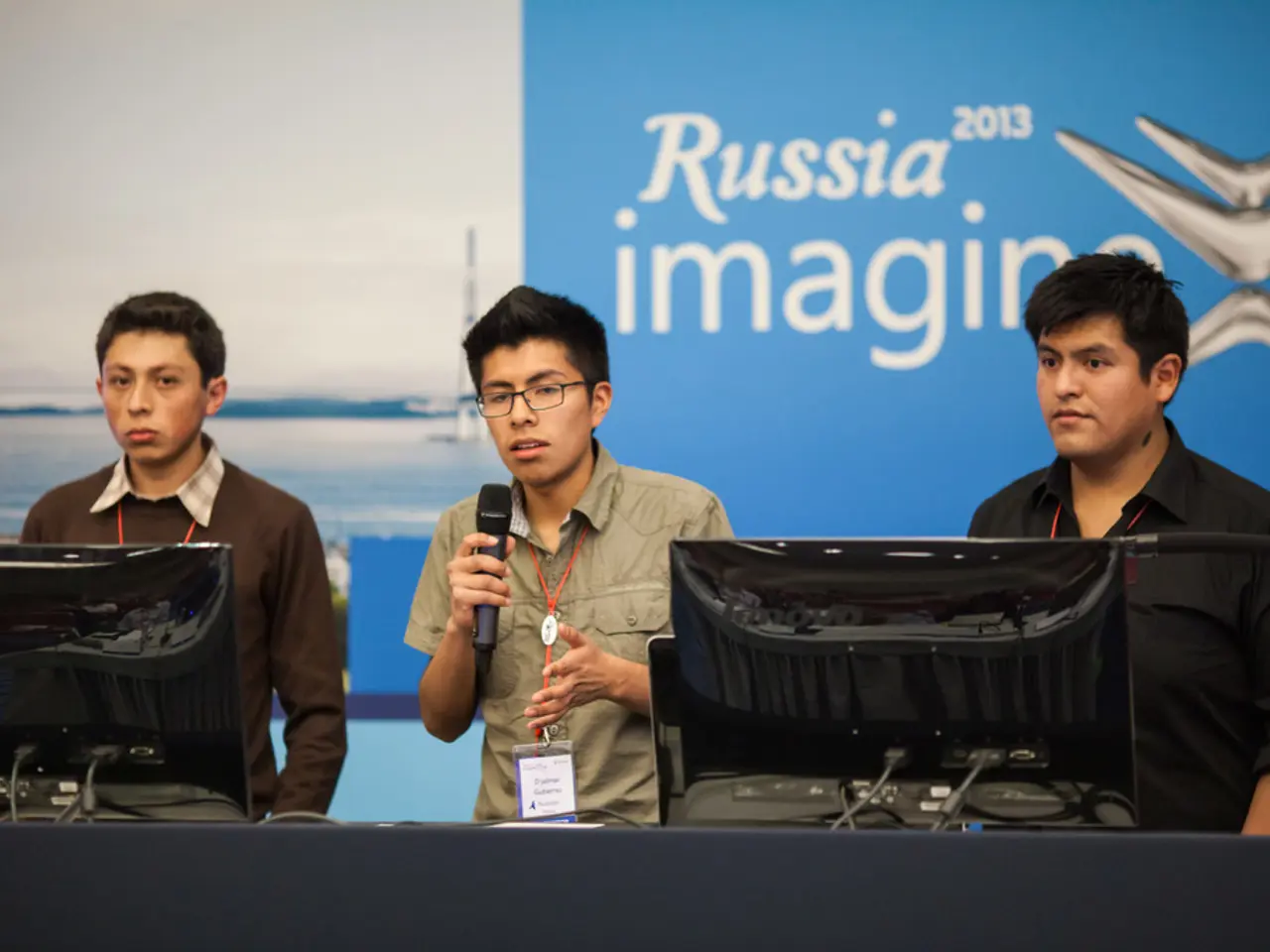U.S. Chipmakers allegedly transfer 15% of their earnings from China back to the U.S. - U.S. chip manufacturers pass on 15% of their earnings from China to the American government.
Nvidia Agrees to Revenue-Sharing Deal with U.S. Government for Advanced Chip Sales to China
In a surprising turn of events, Nvidia has agreed to share 15% of its revenue from sales of advanced AI chips, such as the H20, to China with the U.S. government. This agreement, which was part of a deal that allowed Nvidia to resume selling these advanced chips to the Chinese market under newly issued export licenses from the U.S. Department of Commerce, was reported by the New York Times, Financial Times, and Bloomberg on Sunday.
The deal, described as "very unusual," arose after a temporary ban was placed on the sale of the H20 chip to China in April 2025, which was later reversed in July 2025. The U.S. government conditioned granting export licenses on Nvidia agreeing to this revenue share.
Key details of this agreement include a revenue-sharing arrangement with the U.S. Treasury tied to China sales. The policy shift has drawn criticism because it appears to trade off national security protections for revenue generation. Some experts question whether the chip sales pose a security risk at all if the administration is willing to monetize them.
The agreement is linked to the Trump Administration's broader strategic and political efforts regarding technology export controls and international trade leverage. It's important to note that the USA has imposed strict export restrictions on powerful chips to China under both President Joe Biden and, presumably, previous administrations, citing national security.
Nvidia's CEO, Jensen Huang, met with US President Donald Trump at the White House on Wednesday to discuss this matter. China remains an important market for US companies, despite the strict export restrictions.
The agreement's implications for competition in the chip market, particularly with regards to Advanced Micro Devices (AMD), remain to be seen. As of a month ago, Nvidia had achieved a significant market capitalization, becoming the world's most valuable company with a market capitalization of four trillion dollars.
[1] The New York Times: Nvidia to Share Revenue from Sales of Advanced Chips to China with U.S. Government [2] Financial Times: Nvidia Agrees to Revenue-Sharing Deal with U.S. Government for China Sales [3] Bloomberg: Nvidia to Share Earnings from China Sales with U.S. Government under Export License Provisions
- The US-China business landscape has taken an unexpected twist with Nvidia's decision to share 15% of its revenue from advanced chip sales to China with the US government, as announced by The New York Times, Financial Times, and Bloomberg on Sunday.
- Amidst criticism over potential national security implications, the deal between Nvidia and the US government, which centers around a revenue-sharing arrangement with the US Treasury tied to China sales, trades off some national security protections for revenue generation.
- As Jensen Huang, Nvidia's CEO, met with former US President Donald Trump at the White House to discuss this matter, questions remain about the consequences of this agreement on competition in the chip market, particularly with Advanced Micro Devices (AMD).




